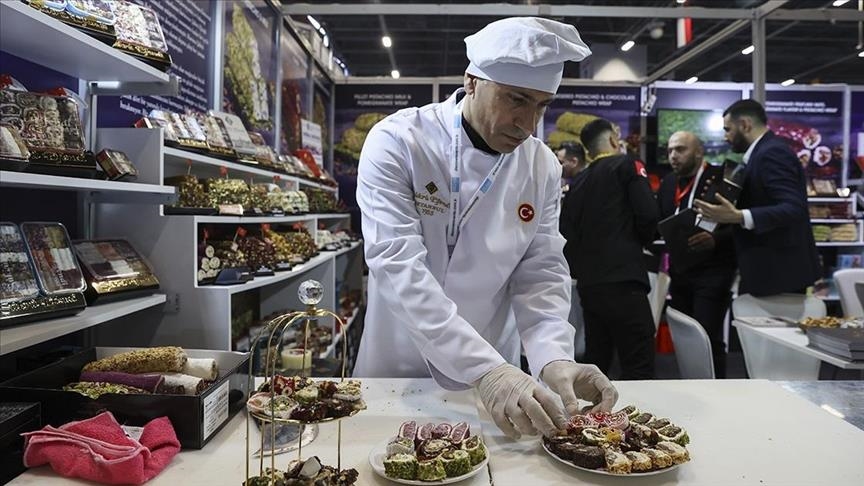ISTANBUL
The 8th World Halal Summit and 9th Organization of Islamic Cooperation (OIC) Halal Expo commenced in Istanbul on Thursday, with officials delving into measures to further expand the burgeoning global market for halal products.
Nearly 500 exhibitors from 40 countries will take part in the four-day events showcasing a variety of products and services conforming to Islamic guidelines, known as halal.
The events, for which Anadolu Agency is the global communications partner, are expected to draw some 40,000 visitors, including around 9,000 people from across the world.
The two major gatherings, considered the most important cooperation platforms for the halal market, aim to make Türkiye the hub of a flourishing sector already worth more than $7 trillion.
In a message read out at the opening ceremony, President Recep Tayyip Erdogan hailed the halal market’s growing international prominence.
He said its reach extends well beyond just Muslims to every person seeking quality products and services.
Emre Ete, a member of the World Halal Summit council, pointed out the sector’s significance as a vehicle of economic growth and solidarity in the Muslim world.
“We will continue to work to increase the ability and solidarity of Muslims to act together for rights and equality in the face of injustice and oppression, to support each other in the economic context, to grow the $4 trillion halal sector, and to increase awareness on the halal market,” he said.
Ihsan Ovut, general secretary of the Standards and Metrology Institute for Islamic Countries (SMIIC), emphasized the stringent focus on quality in the halal market.
He said 17 technical teams of the SMIIC are engaged in efforts on local and regional standards according to the industry’s needs.
“Standards are the common language that we are working on to make our lives easier,” he said.
‘Trade with halal certificates to increase’
Nureddin Nebati, the Turkish treasury, and finance minister, explained that the halal industry has moved beyond just food to command a significant position in areas such as finance, textiles, cosmetics, medicine, tourism, and logistics.
Excluding Islamic finance, the halal economy has grown to $2.1 trillion, he said.
Halal food remains the top component with $1.3 trillion, followed by textiles ($295 billion), media ($231 billion), and tourism ($102 billion), he added.
He said the importance of certified halal products is increasing by the day, particularly for Muslims, who make up about a quarter of the world’s population.
“We expect the volume of trade with halal certificates to increase with the implementation of SMIIC standards, contributions of OIC member states, and the application of a harmonized accreditation system,” said Nebati.
On the field of Islamic finance, he said the sector had grown to $3.1 trillion in 2021 and is expected to hit $3.4 trillion this year.
“The participation finance ecosystem, which has a history of nearly 40 years in our country, has now become one of the most valuable elements of our financial services sector,” he said.
In Türkiye’s banking sector, the share of participation in finance services has expanded to 8.5% from 5% in just the past five years, on pace for the target of 15%, the minister added.
Türkiye also holds a particularly important place in halal tourism as one of the most developed Muslim countries in that field, Nebati said

